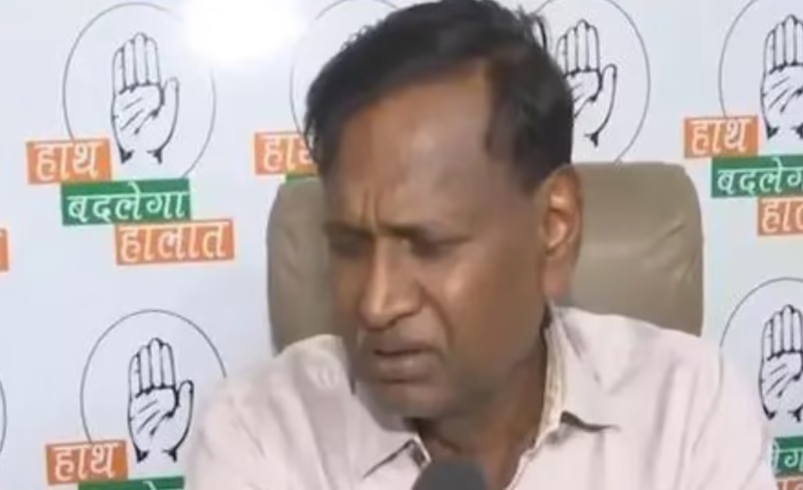Udit Raj’s ‘Ravan’ remark on PM Modi triggers BJP reaction
- October 3, 2025
- 0

Congress leader Udit Raj has stirred a heated political debate after describing Prime Minister Narendra Modi as the “Ravan of Delhi” and predicting his eventual downfall. His remarks, delivered in sharp criticism, quickly drew a strong response from the Bharatiya Janata Party (BJP), with spokesperson Shehzad Poonawala condemning the statement and questioning the Congress party’s motives.
During his remarks, Udit Raj invoked the imagery of Ravan, a central figure in Indian mythology often associated with arrogance and downfall. By calling Prime Minister Modi the “Ravan of Delhi,” he suggested that power built on pride and dominance would not last long. He went further to predict that what he described as a “golden palace” would eventually burn, symbolizing an imminent collapse of leadership.
The comments did not go unanswered. BJP spokesperson Shehzad Poonawala swiftly denounced Udit Raj’s words, framing them as an insult not only to the Prime Minister but also to democratic values. He questioned whether such rhetoric reflected the broader stance of the Congress party and accused its leaders of resorting to personal attacks instead of constructive debate.
Alongside his remarks about Modi, Udit Raj also touched upon India’s foreign policy challenges. He pointed to recent developments such as a Taliban minister’s visit and issues surrounding US tariffs on Indian goods as examples of difficulties faced by the country on the international stage. His comments suggested that these matters required serious attention rather than being overshadowed by political theatrics at home.
In addition to addressing national politics and foreign affairs, Udit Raj dismissed reports suggesting internal discord within Congress ranks in Karnataka. He rejected claims of infighting, emphasizing that such narratives were exaggerated or unfounded. By doing so, he attempted to shift focus back toward policy issues rather than organizational disputes within his party.
The exchange between Udit Raj and Shehzad Poonawala highlights once again how Indian politics often intertwines mythological symbolism with contemporary rivalries. While critics argue that such comparisons lower the level of public discourse, supporters see them as powerful rhetorical tools meant to resonate with cultural memory and historical allegories. The contrasting responses underscore how both parties are seeking to frame public perception ahead of future political battles.
The controversy surrounding Udit Raj’s “Ravan” remark illustrates how charged language can quickly escalate into a larger confrontation between rival parties. While his comments aimed at criticizing leadership style and foreign policy management, they also opened space for BJP leaders to accuse Congress of disrespecting democratic institutions. As both sides continue trading barbs, the episode reflects broader tensions shaping India’s political landscape—where symbolism, rhetoric, and policy debates collide in equal measure.